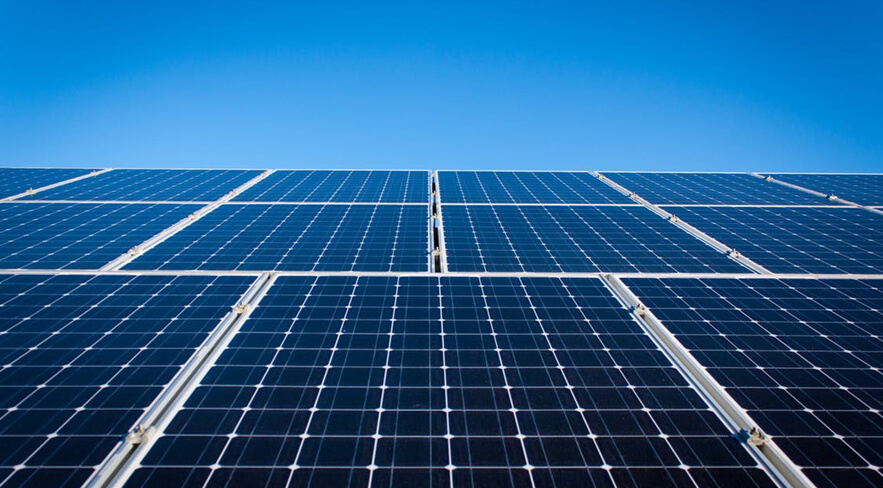Think solar panels are only for people with expensive houses and large roofs? Think again. Lots of homes are suitable for the solar panel installation – a great source of renewable energy.
Here you can find out more about solar panels, whether your house is eligible and why you should pick a trusted-installer.
Why choose solar panels?
If all the solar energy reaching Earth every 30 minutes could be used, it would fulfill worldwide energy requirements for a whole year – the start of a brighter tomorrow.
With an average daily five hours of direct sunlight and a 290 watts premium solar panel, you could achieve 1.5 kilowatt-hours of energy. That’s around 547 kWh of energy per year – or 1,500 hours of TV-watching.
How long does solar installation take?
Solar panels can take less than a day to install on your roof and will be ready to use immediately. However, it is very likely that scaffolding will be needed during the installation process. Check this is included in the overall cost to avoid any nasty surprises.
How are solar panels installed?
Depending on the existing tiles on your roof, installation requires roof anchors to be screwed to the rafters. Aluminium bars, which make a neat frame for your panels, are then locked into these anchors and screwed securely into place.
The next step is to clamp the panels onto it. Trusted installers will check the panels are perfectly straight before attaching them to your roof, dependent on the system you choose.
Panels are then wired to the inverter and usually routed in the loft but the installer should make sure it is as discreet as possible. It’s then that your system is commissioned, and you’ll get an MCS certificate to prove it.
Why you should choose a trusted installer
Choosing a low-rated installed because they are cheap is a huge no-no. While it’s tempting to save cash, a likely mistake could cost you a lot more money in the long term. Because of the popularity of solar in recent years, there’s been a surge in companies with limited knowledge, who want to try to earn a quick quid.
The most worrying aspect is after a few botched jobs the company could dissolve, leaving you without a warranty or company to depend on if anything goes wrong.
Be sure to check reviews and a company’s online presence. If they’re as experienced as they say, they won’t mind you bombarding them with your questions.
If an installer seems too cheap to be true, it could be that they’re using second-hand panels. If this is the case,you won’t be able to receive the feed-intariff, so always ensure you’re getting brand new solar panels.
How long do solar panels last?
New systems should last about 40 years and with a trusted installer, you should get a 20-year warranty on top. Solar panels have no moving parts meaning they are extremely low maintenance.
Is my home fit for solar?
The ideal house for solar would have a south-facing, angled roof with enough space for a 4kw system. But if your home is north-facing with lots of shade, you can still benefit from solar.
To claim the full tariff, you need to ensure you have an Energy Performance Certificate (EPC) rating of D or above. Assessors grade your home on a colour-coded scale from A to G, A being the most efficient with the cheapest fuel bills. You can improve your EPC rating by insulating your loft, getting energy-saving light bulbs or changing your boiler.
Our FI Tariffs team supply three types of solar panel technology:

Flat plate collector systems convert heat radiated by the Sun into heat energy. Liquid running through the solar panels is warmed by sunlight before passing through a coil in the water tank to heat the water inside.
Benefits
- Lower CO2 emissions on an average domestic system by up to 400kg
- Easy to maintain and install
- Save money on heating hot water whilst reducing your carbon emissions
- NEED A PIC OF THE EVACUATED ONES
Evacuated tube collector systems are most commonly in domestic homes but can be used for commercial buildings too. These systems are the most expensive systems to install but are the most efficient.
Benefits
- Capture sunlight from any angle due to their round surfaces
- When the Sun is low in the sky they still function at their full efficiency
- Easily integrated with other heating systems
- Reduce the cost of hot water
- Easy to maintain and install

Photovoltaic panels convert solar radiation into electricity, known as the ‘photoelectric effect’.
These panels contain semi-conductors –one negative and one positive silicon plate. When sunlight hits the plates,electrons jump from positive to negative, creating a flowing direct current. This is then fed into an inverter to produce AC electricity for appliances in the home.
Benefits
- Don’t produce greenhouse gases, meaning you save on CO2 emissions
- Excellent investment return for a period of 25 yrs, tax-free to domestic users
- Easy installation
Things to consider
- Installation is easy but you should consider location, shade and tilt angle, as these will all determine the performance of your chosen system. All systems we install are completely environmentally safe for home and commercial buildings.
- Planning permission in the UK is generally not required but should be checked for listed buildings or conservation areas.
- The system can connect into the local electricity network, and any excess electricity can be sold back to National Grid.
FI Tariffs’ in-house team will help you choose the best system for your needs. For further information contact us today to speak with one of our solar panel experts.
